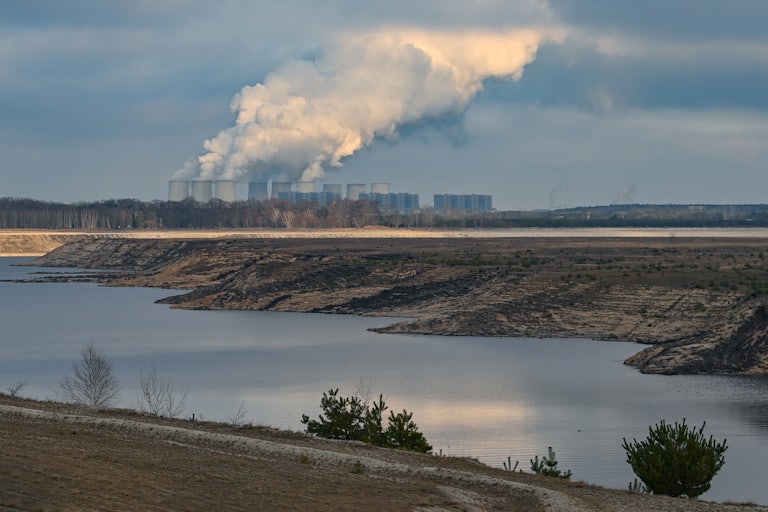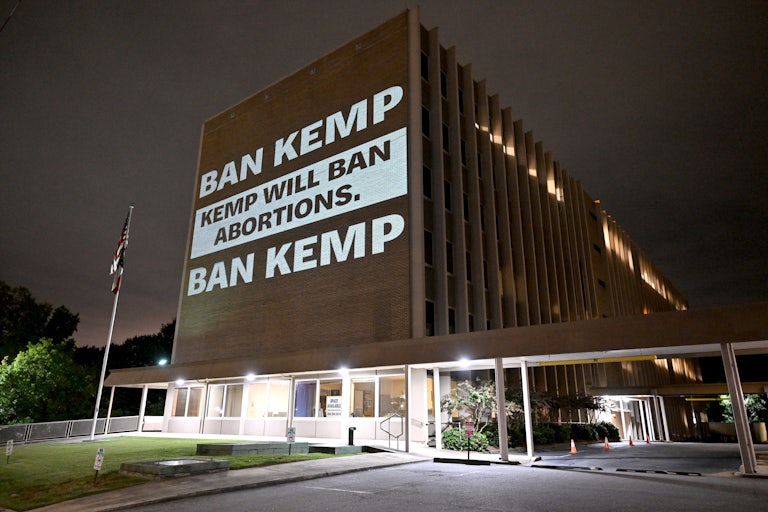Report: 96 Percent of U.S. Coal Plants Have No Plans to Clean Up Groundwater They Contaminated
Coal plants have gotten away with contaminating our water for years.

Seven years ago, the Environmental Protection Agency issued its coal ash rule, ordering power plants to clean up toxic coal ash waste dumps. But three presidential administrations later, just one out of 292 plants evaluated by researchers has planned a comprehensive cleanup. Ninety-six percent of all plants evaluated have proposed no groundwater treatment at all.
These toxic sites host arsenic, lead, mercury, and other toxic metals—all of which seep into groundwater and thus the water we drink. Seventy percent of these waste ponds threaten lower income neighborhoods and communities of color.
These findings were published in a report by the Environmental Integrity Project and Earthjustice, revealing that coal-fired plants across the country have gotten away with data manipulation, lax environmental safety measures, and delayed clean-ups (not including the baseline carbon emissions they have spewed into the atmosphere for years).
It’s not just a lack of planning that has kept coal plants from cleaning up their mess. The report found nearly half the contaminating plants had owners refusing to take any cleanup action, and many even denying responsibility. Other plants have taken some action, simply agreeing that action is needed and—if we are so lucky—providing a list of possible solutions they could pursue someday. But owners have delayed actually executing solutions for years.
In January, the EPA began following up with plants that requested more time and others that have not complied. But enforcement is limited; much of the follow-up has been limited to notifying plants about their obligations to comply with regulations.
Though coal is on the decline in the U.S., it still generated about 22 percent of the nation’s electricity last year—roughly the same amount of all renewables. While renewable energy generation must overtake fossil fuel sources (by existential necessity), the report serves as a reminder that it isn’t enough to stop fossil fuel generation—the waste it leaves behind must be accounted for.
Read more at Environmental Integrity Project.








